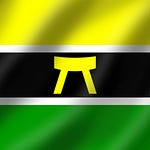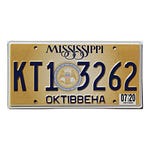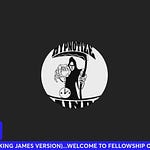OBJECTIVE: In this quick Afro-Hebraic linguistic study we will look at the Ancient East African word “Shifta” & it’s variations. “Shifta” is the Swahili variation. Swahili is a Bantu-Semitic language with over 100 million native speakers throughout Eastern Africa & small portion of Central & Southern Africa. According to the Torah in Genesis Chapters Ten & Eleven Elohim divided the nations (Shem, Ham, Japheth) by language family. Swahili is a Bantu-Semitic language. This means the native Bantu peoples of Swahili speaking countries are Semitic in origin. Specifically as we will see with the word “Shifta” that Semitic origin is Hebrew. This word will be traced back to it’s Biblical Hebrew root word etymologically. The other variations of this word are found in the Afro-Asiatic or Hamito-Semitic language family speakers of Eastern Africa. Specifically speaking Ethiopic & Cushitic with the latter having acquired it from the prior. Ethio-Semitic languages is a family of languages spoken in Ethiopia, Eritrea, and Sudan. They are part of the western branch of Semitic languages, itself a sub-branch of Semitic, part of the larger Hamito-Semitic or Afro-Asiatic language family. The West Semitic languages consist of the clearly defined sub-groups: Modern South Arabian, Old South Arabian, Ethiopic, Arabic, and Northwest Semitic (this including Hebrew, Aramaic, Edomite, Moabite, Ammonite, Midianite, Amorite and Ugaritic [Canaanite] languages).This means native speaks of these languages in Eastern Africa are also Semitic & specifically Hebrews in origins according to Abrahamic Religions (Judeo-Christianity & Islam)
Etymology: Borrowed from Swahili shifta, from Amharic ሽፍታ (šəfta). Shifta originally was a word that had a positive connotation rather than a villainous one, over time, the term has taken on a more devious meaning in modern day East Africa. In Ancient East Africa, North Africa, & the Middle East a “Shifta” was an Ancient Hebraic-Phoenician (ISRAELITES OR JEWS, MOABITES, AMMONITES, MIDIANITES, ARABS, EDOMITES, AMORITES, CANAANITES, & PUNIC PEOPLES [A MIXTURE OF ALL THESE PEOPLES WHO INHABITED NORTH WEST & NORTH CENTRAL AFRICA] term used for a local ruler or leader. This local leader or ruler presided over lawless groups giving them law & order. Today It is a term mostly used in Ethiopia, Eritrea, Kenya, Tanzania, Uganda and Somalia. The Swahili word derived from Amharic ሽፍታ (šəfta). Historically, from medieval to modern times the shifta served as a local militia in particularly remote, rural and often lawless parts of Eastern Africa. The word shifta can be translated as "bandit" or "outlaw," in modern East Africa & can include anyone who rebels against an authority or an institution that is seen as illegitimate. Shifta has both positive and negative connotations, that of a common outlaw and that of a revolutionary or patriot; both concepts being distinct, but not necessarily mutually exclusive. They are often considered as highly respected, politically-minded revolutionaries struggling for social order or a political cause. In the 15th century Portuguese explorers in medieval East Africa stated “that due to the countries mountainous nature rebels could hide out in the countryside, evading capture by imperial troops, setting up ambushes, and subsisting off the local land for months.” The Portuguese documented them as being called “Shifta”. They were a form of law enforcement in East Africa & likely comes from northern Ethiopian societies blood feud (Amharic: ደመላሽ, romanized: Demelash, lit. '"blood return" or "response"'...SEE NUMBERS 35:24 HEBREW DAMALGAAL). A common occurrence in many Middle Eastern, North African, and Horn African cultures, it plays a larger role in Amhara and Agew culture as those wanted for murder can easily escape arrest due to the rugged and difficult-to-traverse topography of the Ethiopian Highlands, leading next of kin to take matters into their own hands. A concept taken from Torah for the avenger or revenger of kinsman blood hence Vendetta. In Ethiopia, individuals who started as shifta have risen to the level of regional or Emperor thus legitimizing the concept of shifta itself. Two nineteenth-century shiftas, Kassa Hailu] of Gondar and Kassa Mercha of Tigre, became Emperor Tewodros and Emperor Yohannes respectively in the late 19th century. Thus the shiftas formed the military elite and became the core of the resistance, using their military skills against the Italians. To be described as a shifta, during the Italian occupation, was an honor for an East African. In recent times, both prime ministers Isaias Afewerki of Eritrea and Meles Zenawi of Ethiopia were called shifta.
Theological Wordbook of the Old Testament, edited by R. Laird Harris, GLeason L. Archer, Jr., and Bruce K. Waltke. TWOT deals with the Hebrew/Aramaic words in the Old Testament that have a theological significance. It gives a short definition to every Old Testament word, but goes theologically in depth on the words that would be necessary.
ENTRY 2443














AFRO-HEBRAIC LINGUISITIC STUDY: "SHIFTA" AN EAST AFRICAN HEBREW WORD